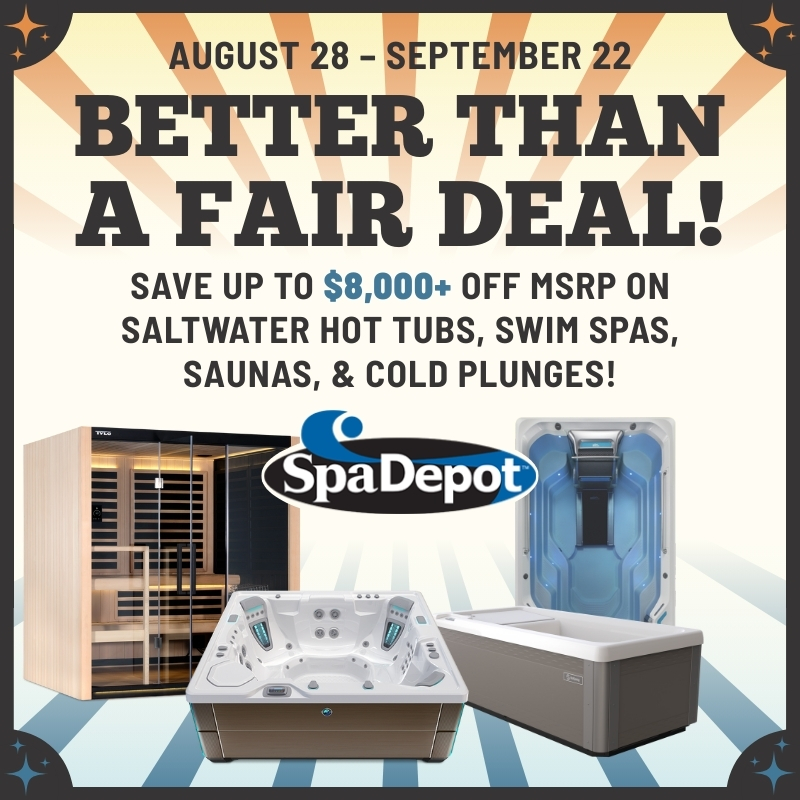Truth About Inflatable Hot Tubs
Inflatable Hot Tubs vs. Hardshell Hot tubs
The Key Differences & Our Top Picks

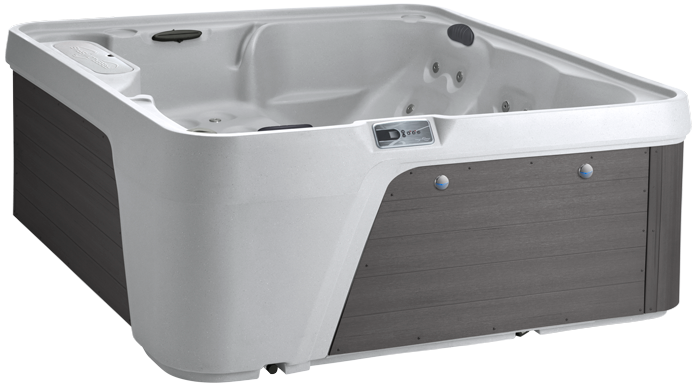
Sections
Hardshell vs Inflatable Hot Tub Overview
Before you get lured into the hype and low initial prices of inflatable hot tubs, here’s everything you need to know about the reality of owning an inflatable hot tub and how they stack up against traditional hard shell hot tubs in 2020.
While inflatable hot tubs usually draw consumers in with lower prices starting at around $800-1,500, low energy efficiency, small water capacity, slow heat-up times, weak filters, misleading capacity ratings, and the dreaded “leg overlap” issue have left many inflatable hot tub owners regretting their purchase. It isn’t all bad however, so let’s go over some key differences to help you choose the perfect hot tub for your home.
Inflatable Hot Tubs
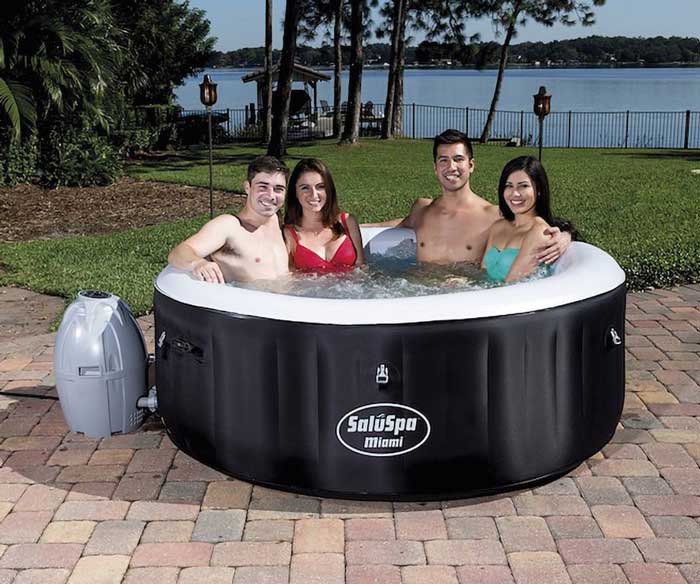
PROS
- Lower Cost
- Packs Away
- Quick Inflation
- Easy To Move
- Plugs Into Standard Outlet
CONS
- Misleading Capacity Ratings
- Shallow Water Level
- Overlapping Legs
- 90 degree seating position
- 5-7 year lifespan
- Energy Hog (usually uninsulated)
- Unsanitary Water due to small filter & small water capacity
Hardshell Hot Tubs
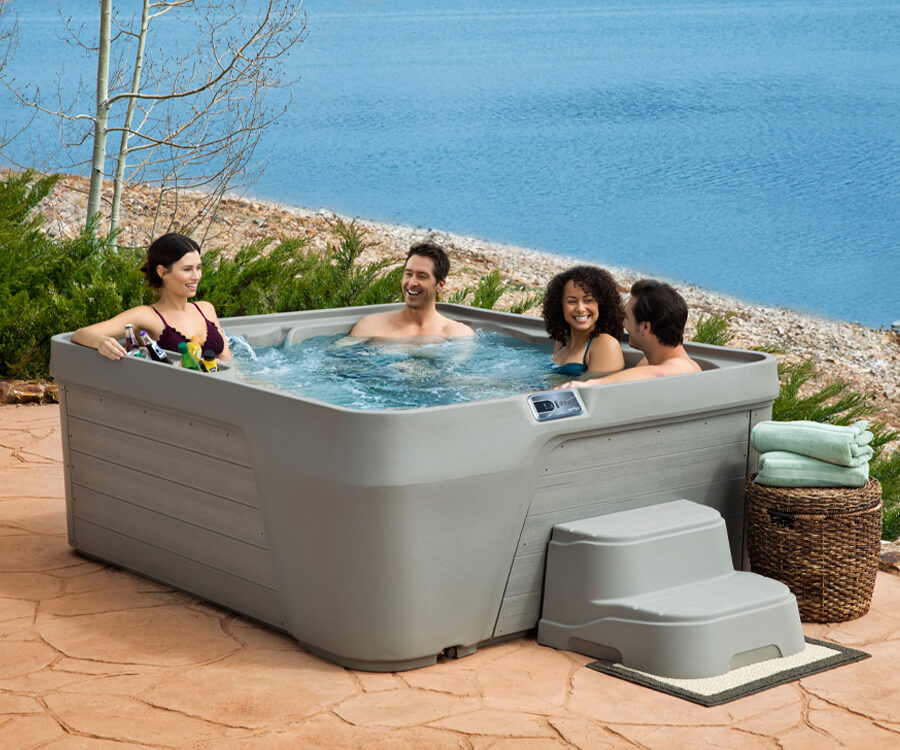
PROS
- 20+ Year lifespan
- Bench Or Lounge Seating
- Insulated & Energy Efficient
- Internal Filter & Heater
- Plugs Into Standard Outlet
- Nation-wide Service Available
- Large & Deep
- Modern Styling
- More Jets & Massage Features
CONS
- Higher Initial Cost
- Harder To Move
Jets & Comfort
This category is a large differentiator between inflatable hot tubs and hard shell hot tubs. Again, you get what you pay for. One of the biggest differences between inflatable hot tubs and hardshell hot tubs is the seating position. In inflatable hot tubs, there is no ledge to sit on and therefore you sit bent at a 90-degree angle with your legs straight in front of you resting on the bottom of the tub. To make things worse, this seating position means everyone’s legs clash in the middle and ultimately have to rest on top of or below everyone else’s legs.
Hardshell Portable Hot tubs are typically taller and larger than the average inflatable hot tub and feature bench or lounge seating with ample legroom. This makes for a much more sustainable and comfortable seating position while avoiding the need to rest your legs on someone else’s. On top of this, hardshell tubs feature a multitude of back, neck, leg, foot, & hand massage jets and massage settings while inflatable hot tubs usually only feature 0-4 jets.
Hardshell vs. Inflatable Hot Tub Lifespan
While leading portable hot tub brands such as fantasy spas and leading inflatable hot tub brands such as Intex share a 5-year shell warranty, inflatable hot tub warranties usually do not cover punctures, and repairing them is left to the consumer. When considering the lifespan of your new hot tub, you can expect to receive around 5 -7 years of use out of an inflatable hot tub compared to 20+ years of use from a hardshell hot tub.
Heating & Filtration
Heating and filtration is another area where inflatable hot tubs fall short. With a lack of insulation, inflatable hot tubs leak out their heat energy and will wreak havoc on your energy bill if kept heated. The alternative is to heat up your inflatable hot tub every time you want to use this. Even with its small water capacity, your water will only heat up at a rate of around 2-3 degrees per hour.
One of our biggest gripes with inflatable hot tubs beside the seating position and leg overlap issue is the water quality. Water in your inflatable hot tub can become unsanitary fairly quickly with such a weak filter. Chemicals can only go so far to clean such a small amount of water that is used again and again.
Hard-shell hot tubs however have a higher water capacity, professional and powerful filters, integrated heating, and full foam insulation. This means it will cost you less to keep your hot tub hot, and your water will always be clean and clear.
Best Portable & Inflatable Hot Tubs
If you are looking to buy the perfect small-sized affordable hot tub for your home, here are our top picks for the best inflatable and hard-shell hot tub of the year.
Best Inflatable Hot Tub
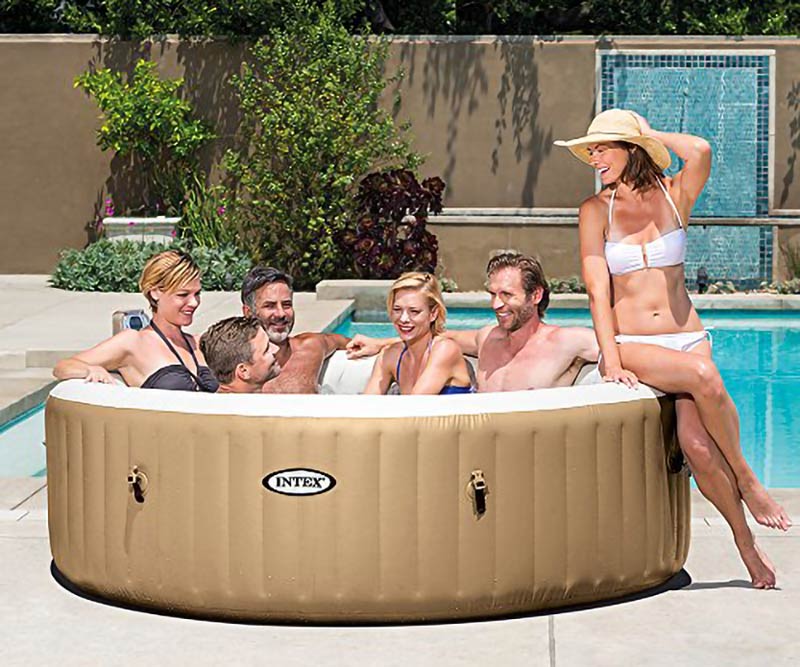
Intex Purespa 6 Person Hot Tub
We chose the Intex Purespa 6 person spa for our best inflatable spa of the year due to its 5-year shell warranty, trusted name, available add ons, and low initial price. If you want to comfortably fit 4 people we would recommend opting for the 6 person model.
Best Portable Hot Tub
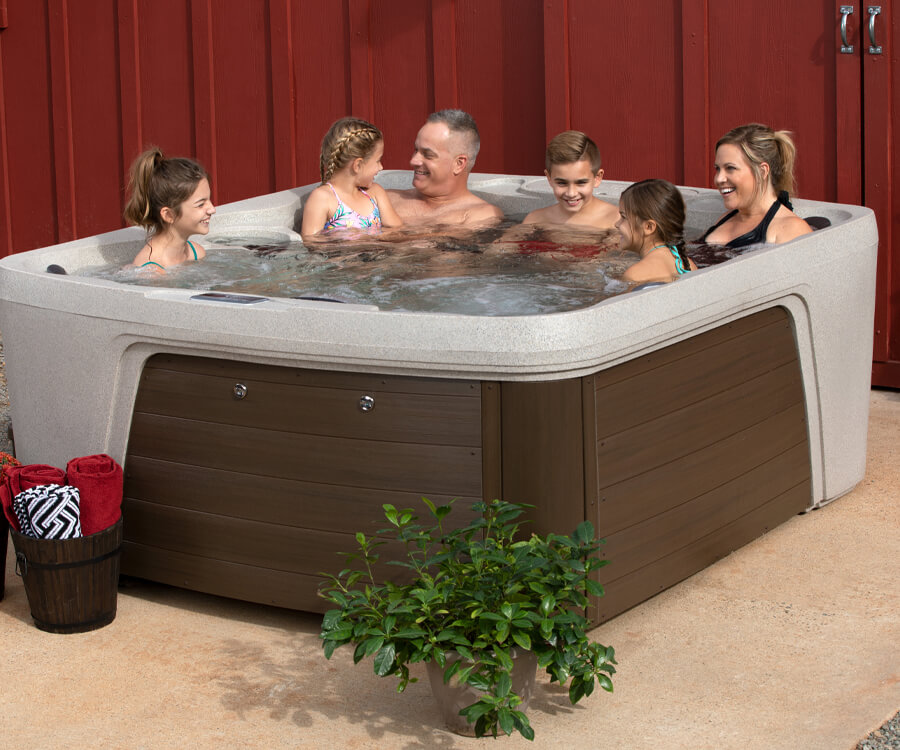
Freeflow Monterey™ Premier 7 Person Hot Tub
The Monterey Premier hot tub is the largest in the Freeflow line, comfortably seating up to 7 people. Enjoy the upgrades that the Premier Series offers including a synthetic wood exterior cabinet, contoured pillows, and interior and exterior LED lights.

